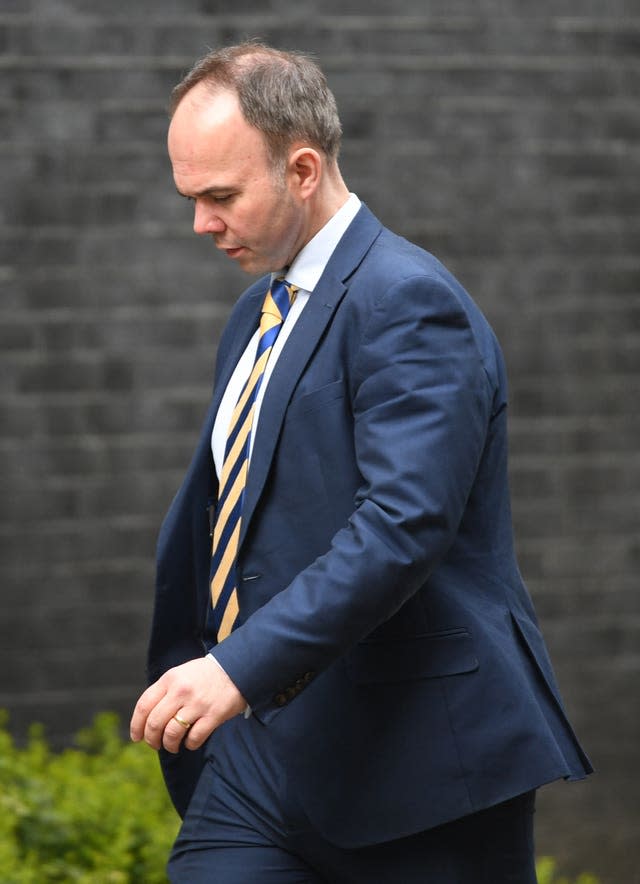Kwarteng in fresh crisis talks with energy suppliers as gas prices surge
Business Secretary Kwasi Kwarteng is holding a fresh round of crisis talks with the energy industry amid fears more small suppliers could go to the wall following a surge in gas prices.
Following a meeting on Sunday with the regulator Ofgem, Mr Kwarteng said “well-rehearsed plans” were in place to ensure consumers were not cut off in the event of further failures.
However, he is expected to come under pressure from the big suppliers for a major Government support package to help them through the crisis.
The Financial Tines reported the industry wants the creation of a so-called “bad bank” to absorb unprofitable customers from firms that fail.
Meanwhile, Boris Johnson sought to reassure consumers the price increases were only “temporary” as the world economy picked up after the Covid pandemic.
“It’s like everybody going back to put the kettle on at the end of a TV programme, you’re seeing huge stresses on the world supply systems,” he told reporters travelling with him to the United Nations General Assembly in New York.
OGUK, representing the offshore oil and gas industry, reported wholesale prices for gas have surged 250% since January – with a 70% rise since August alone.
Following a weekend locked in emergency talks, Mr Kwarteng acknowledged it was a “worrying time” for customers, but said he was confident supplies could be maintained.
He said consumers would be protected from sudden price hikes through the Government’s energy price cap.
However that puts pressure on the suppliers – particularly smaller companies – who are unable to pass on the increases in wholesale gas prices to their customers.
Four firms have already folded and there are fears that more could follow.
Some analysts have reportedly predicted that the UK’s energy companies could be reduced to three-quarters over the coming months leaving as few as 10.
After meeting Ofgem chief executive Jonathan Brearley on Sunday, Mr Kwarteng indicated that in the event of further failures he could appointment a “special administrator” – effectively a form of temporary nationalisation.
Our priority is to protect consumers.
If a Supplier of Last Resort is not possible, a special administrator would be appointed by Ofgem and the Govt.
The objective is to continue supply to customers until the company can be rescued or customers moved to new suppliers (3/7)
— Kwasi Kwarteng (@KwasiKwarteng) September 19, 2021
“Our priority is to protect consumers. If a supplier of last resort is not possible, a special administrator would be appointed by Ofgem and the Government,” he said.
“The objective is to continue supply to customers until the company can be rescued or customers moved to new suppliers.”
At the same time ministers are grappling with warnings of potential shortages on the shelves as the knock-on effect of the gas price rise ripples through the economy.
Producers have warned that supplies of meat, poultry and fizzy drinks could all be hit due to a shortage of carbon dioxide (CO2).
It follows the shutting down of two large fertiliser plants in Teesside and Cheshire – which produce CO2 as a by-product – with the owners citing the increase in gas prices.
The Food and Drink Federation chief executive Ian Wright said CO2 was essential to many production processes and warned there could be “serious consequences” for supplies within a matter of days.
On Sunday, Mr Kwarteng met with Tony Will, the global chief executive of CF Industries, the UK’s biggest supplier of CO2 and the owner of the two fertiliser plants.
He said they had discussed the pressures the business was facing and “explored possible ways forward to secure vital supplies, including to our food and energy industries”.
The rise in gas prices has been blamed on a number of factors, including a cold winter which left stocks depleted, high demand for liquefied natural gas from Asia and a reduction in supplies from Russia.
Mr Johnson, however, insisted that he remained confident energy supplies would be maintained.

“I have no doubt that supply issues will be readily addressed. We’re very confident in our supply chains,” he said.
“But in the meantime, we will make sure we work with all the gas companies to do whatever we can to keep people’s supplies coming, to make sure they don’t go out for business, and to make sure we get through the current difficult period.”
Tory peer Lord Barwell, who was Theresa May’s chief of staff, warned the current situation could “become a crisis”.
Speaking on BBC Radio 4’s The Westminster Hour, Lord Barwell said: “It definitely has the potential to become a crisis.
“I think that the first concern of government will be about ensuring security of supply, making sure that we’re all still getting the gas that we need, both domestic and businesses.
“But the second concern will be about prices that consumers are being asked to pay … More generally, (the Government) will also be worried about the cost of living.
“We’ve got the tax increases that they’ve just brought in, we’ve got the universal credit reduction, that’s about to come online, plus rising energy bills, I think there is a real political danger here of cost of living issues becoming a real difficulty for the Government.”

 Yahoo Finance
Yahoo Finance 